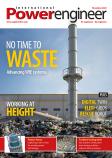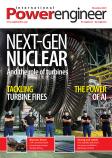The nuclear industry operates in quite a unique position in that it has a defined date when a site will be decommissioned, so the aim is to ensure that all the assets on site will provide reliable service throughout the plant’s life. Operators look to minimise running and maintenance costs by introducing design changes that will preserve the existing assets and add to reliability.
There can be no margin for error in a nuclear power plant. Everything must perform exactly as it was designed, but there is still room for improvements to be added. Sulzer specializes in assessing legacy equipment and adding value by modifying a design or changing a material so that durability is improved.
Known for its expertise in pump manufacturing and maintenance, with service centres across the world, Sulzer offers support to all pumping applications. However, there is one service centre in Chattanooga, Tennessee, USA, that offers advanced solutions to the nuclear industry, a specialist sector that demands particular attention to detail.
Eric Jenkins, manager at Chattanooga, explains: “We offer a specialist service that is tailored to the exacting requirements of nuclear power plants. Every part of a project is handled by highly experienced engineers, managers and designers to ensure that every repair, upgrade or reverse engineering task is delivered on time with particular attention to industry specifications.”
Case in point
In a recent project, Sulzer designed and manufactured a set of six replacement raw-water cooling pumps for a nuclear installation. The new pumps had a lower specific speed than the originals, reducing their power requirements, which improved the margin on the diesel generators. The pumps met all of the required specifications as well improving performance and reducing vibration.
The key to this improvement was understanding the pump curves and how they interact with each other. Previous issues with original pumps were resolved but, more importantly, the amount of power required from the diesel generators to run the pumps was significantly reduced. This action removed any need to re-rate the generators, which could have cost millions of dollars.
Where necessary, Sulzer assumes responsibility for the design, reverse engineering and certification of pumps and assemblies for most original equipment manufacturers (OEMs). The quality assurance programme employed at Chattanooga Service Centre is certified and audited to meet the requirements of 10CFR50 Appendix B, part 21, and ASME N and NPT Class 1, 2 and 3.
The focus on improved durability can often involve improving the metallurgy of a component or refining impeller geometry to minimise cavitation. Every application has its own set of challenges and Sulzer is fully equipped to assess performance, deliver specific recommendations and implement them.
Using the latest data capture tools, laser scanners and precision machine tools, it can create new components with improved hydraulic performance and extended durability.
Round-the-clock support
In addition to planned support, there is also a demand for out-of-hours assistance. The power generation industry operates round the clock and as a key provider of engineering support, the service centre at Chattanooga offers support 24/7.
Jenkins concludes: “The ideal scenario is for all maintenance projects to be carefully planned, but occasionally unexpected issues can arise that require an immediate response and we have the necessary resources to support customers, day or night. In this way, repair projects can be delivered in the shortest possible time, minimising disruption and returning assets to full operational status at the earliest opportunity.”
















